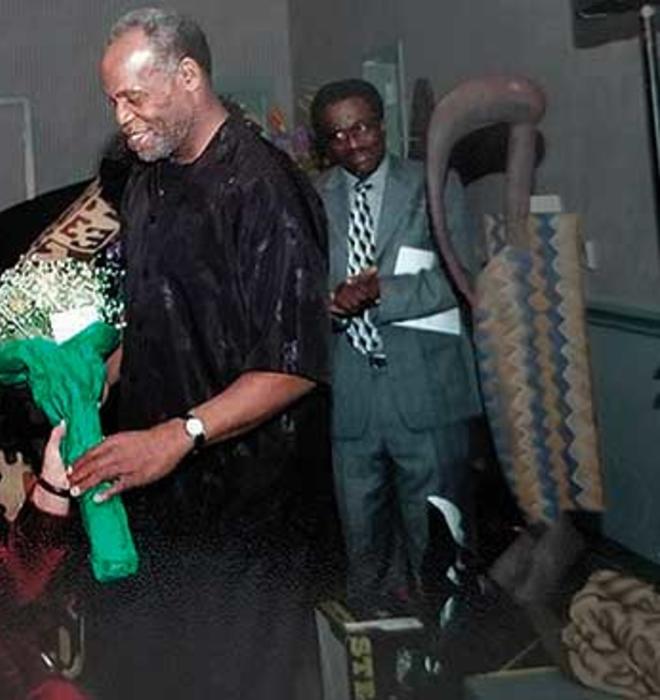
June 30, 1949 • Dec. 23, 2017
WHEN PHYLLIS DARDEN-CALDWELL was summoned to help pack up Clara Meek *77’s office upon Meek’s retirement from Houston law firm Vinson & Elkins in 2000, the former paralegal reveled in the opportunity. Unlike other offices, which featured more muted décor, Meek’s space burst with color and personality.
“Clara’s office was totally African. She’s probably the only one I knew who had peach-colored walls and African art in there,” recalls Darden-Caldwell, who worked with Meek for more than 30 years. “She was very much her own person, very much an individual. She didn’t fit the mold.”
In her 68 years, Meek traveled from the segregated school system of Marshall, Texas, where she was the youngest of 11 children, to the high-powered international law firm Vinson & Elkins, where in 1994 she became the firm’s first African American global partner. Meek’s nephew Donald Ray Landor served as her caretaker in the final years of her battle with lupus, the disease that ended her life. “Even people she didn’t know, she helped,” he says.
Meek attended Texas Southern University, graduating summa cum laude. She went on to earn a master’s degree and a Ph.D. in public affairs from Princeton’s Woodrow Wilson School and worked in government and higher education before enrolling in law school at the University of Texas.
Meek routinely called out discrimination wherever she saw it: within the legal community and around the world, commanding respect from fellow lawyers and judges, according to colleagues and friends.
“She was a force by herself,” says Ruthie White, a principal at the Jackson Lewis law firm in Houston and founder of The Downtown Group, a network for African American female lawyers, of which Meek was a leading member. “She told me that the legal profession is the least diverse profession in the nation and is not for the faint. She confirmed that the old adage was still true: A person of color has to work twice as hard and long to maintain ground with other partners at a law firm.”
Meek worked to advance minority voices wherever she could. She regularly stumped for political candidates who she felt advocated for civil rights, and was active in organizations such as the NAACP, the Houston Area Urban League, and TransAfrica, spending a year volunteering in Africa. She routinely purchased food and blankets to distribute to Houston’s homeless population, sometimes giving away her own items. She was passionate about the field of African American studies (a scholarship has been created in her name at the University of Texas).
Those close to Meek could not recall her speaking about specific slights she endured as a pioneer in an elite firm. But her longtime V&E colleague and mentor Harry M. Reasoner remembers how, when the two were arguing a large antitrust case, an opposing lawyer complained to the judge that Meek was unfairly attempting to sway African American jurors. The claim was dismissed. “Clara had done nothing improper,” Reasoner says. “But it was indicative of some of the things Clara had to deal with.”
Even today, only approximately 2.5 percent of equity partners in large law firms are minority women. But, fellow attorney White recalls, “Clara always said, ‘Our race has never let a statistic hold us back.’”
Agatha Bordonaro ’04 is a New York-based writer and editor.






No responses yet